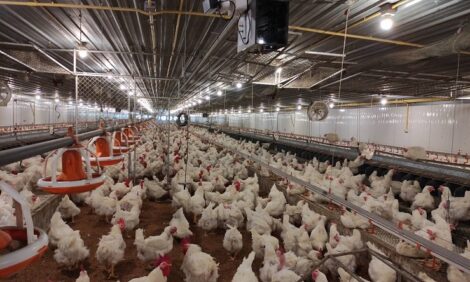



Washington investigating possible human infections of avian influenza
Workers developed symptoms after working with infected poultryFour agricultural workers tested presumptively positive for avian influenza after working with infected poultry at a commercial egg farm in Franklin County, according to a press release from the Washington State Department of Health.
The individuals experienced mild symptoms and have been provided with antiviral medication. Testing of additional individuals on the farm is currently pending and the number of cases under investigation may change.
These are the first presumed human cases of H5 virus under investigation in Washington state. The cases took place at a farm that was the site of an avian influenza outbreak in chickens. About 800,000 birds were euthanized after test results by the Washington State Department of Agriculture on Oct. 15 showed that they were infected with avian influenza.
The Benton-Franklin Health District (BFHD) conducted health checks of exposed workers and coordinated testing at the Washington State Public Health Lab. The samples have been forwarded to the Centers for Disease Control and Prevention (CDC) for final confirmation and analysis of the virus.
Benton-Frankin Health District and the Washington State Department of Health (DOH) are working with the Washington State Department of Agriculture and the CDC on the regional response to this outbreak. DOH and BFHD have provided personal protective equipment to workers on the farm, are monitoring exposed workers for symptoms of avian influenza, and are providing testing, vaccines, and treatment for symptomatic workers.
Any employees or contractors who may have worked on a poultry farm in Benton or Franklin counties since Oct. 7 should contact BFHD at 509-460-4550 if they have symptoms such as red eyes or respiratory infections.
Washington is the sixth state to identify a human infection of H5N1. H5N1 highly pathogenic avian influenza (HPAI) has caused ongoing multistate outbreaks in poultry, dairy cattle, and wildlife.
“Washington has monitored the spread of H5N1 closely since it was first detected in poultry in the state in 2022, and our state is prepared with the knowledge, relationships, and tools to minimize its impacts on our community,” said Washington Secretary of Health Dr. Umair Shah.
The DOH has worked in partnership with the Washington State Department of Agriculture and the Washington Department of Fish and Wildlife to respond to detections of H5N1 in animals in the state, and to monitor the health of people exposed to infected animals. The DOH has worked with these animal health partners to distribute personal protective equipment and informational materials to dairy and poultry farmers.
Avian influenza is a disease caused by avian influenza Type A viruses that naturally occur in wild aquatic birds throughout the world. H5N1 viruses can also infect other species of birds, and occasionally mammals, and can cause significant mortality in poultry species, such as chickens, turkeys, pheasants, quail, ducks, geese, or guinea fowl.
On rare occasions, avian influenza viruses infect people and make them sick. Most instances of people becoming infected with avian influenza have happened after prolonged, close contact with animals infected with avian influenza or environments contaminated with avian influenza.
The CDC currently considers the risk to the general public from this H5N1 avian influenza to be low; however, people with job-related or recreational exposures to infected birds, cattle, or other potentially impacted domestic or wild animals are at higher risk and should take precautions,including wearing personal protective equipment.









